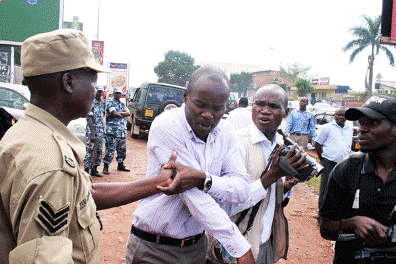
Ugandan media censored over Walk to Work protests
Freedom of the press in Uganda hit a new low late last week when the government, in response to a decision by opposition figures to demonstrate against the escalating price of food and fuel by walking to work, banned live coverage of the protests and issued a directive to Internet providers to block two popular…

CPJ calls on Uganda’s Museveni to respect press freedom
In partnership with the Ugandan Human Rights Network for Journalists, CPJ has written a letter to Ugandan President Yoweri Museveni asking him to respect press freedom and end a wave of attacks against journalists in the run-up to the February 18 general elections. At least 10 journalists have been attacked in election-related incidents since the…
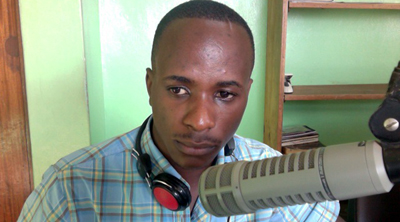
As Uganda election nears, fear among reporters
As Ugandan journalists prepare to cover presidential elections on February 18 amid political tensions and security concerns, uncertainty and fear are on the minds of reporters. That’s particularly so after a year in which 52 press freedom abuses–ranging from physical and verbal intimidation to state censorship and murder–were recorded, according reports by Ugandan press freedom…
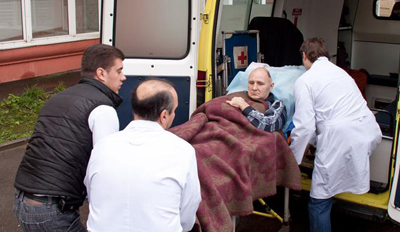
Help journalists in need: An appeal
Mikhail Beketov is lucky to be alive, although I’m sure there are days when he doesn’t think so. On November 13, 2008, the environmental reporter who campaigned against a highway that would have destroyed a forest in Khimki, a town outside Moscow, was beaten nearly to death by men with metal bars. The attackers made…
Uganda lifts ban on CBS, staff celebrates with caution
Full, normal broadcasting of the Ugandan Central Broadcasting Service (CBS)–owned by Uganda’s powerful traditional Buganda kingdom–resumed Monday after nearly 14 months of silence. While CBS staff welcomed their return to work, many recounted a tough year and questioned the nature of the station’s re-opening.
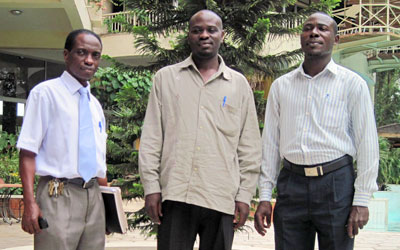
Ugandan station still closed, an ill omen for election
More than a year has passed since the government-influenced Broadcasting Council summarily closed the popular Central Broadcasting Service, or CBS. The council closed the station in September 2009 as riots were erupting in response to the government’s decision to block the traditional Buganda king from attending a youth celebration north of the capital, Kampala. Its…
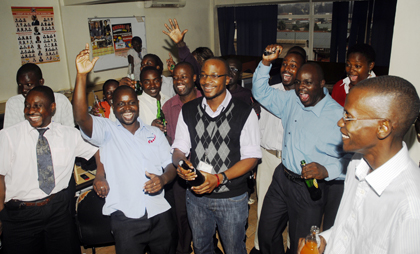
Ugandan media celebrates, fights on after sedition ruling
With surprise and relief, Ugandan journalists, who routinely face the police’s “media crimes” unit, welcomed a partial victory for press freedom on Wednesday. The country’s constitutional court had ruled that criminal sedition was unconstitutional. Even so, there was a consensus that more legal press battles lie ahead.
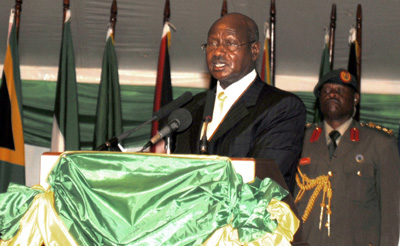
From 9/11 to 7/11, balancing security, liberty
Ugandan President Museveni urged his peers at this week’s African Union summit to unite in the battle against terrorism in the aftermath of the terrible 7/11 bombings in Kampala. Security measures pursued by Ugandan authorities after the twin bombings, however, have left some Ugandans and other East African residents wary. East African journalists were among…
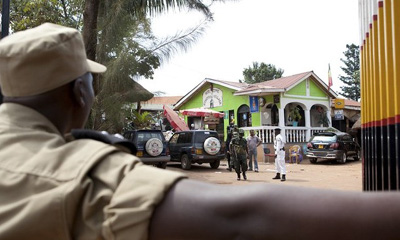
Journalist among dead in Uganda terror attacks
Since the beginning of Somalia’s Islamist extremist insurgency, the Al-Shabaab militia has targeted journalists and others that it considers opposed to its goals. Al-Shabaab is now reaching beyond Somalia’s borders, as the group claimed responsibility for two bomb attacks Sunday evening that rocked Uganda’s capital, Kampala, and left an estimated 74 people dead, including radio…
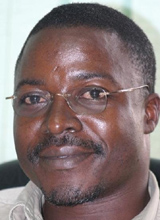
In Uganda, bill challenges press freedom
On March 24, I received an e-mail from a close friend under the intriguing subject “What…?” On opening the e-mail, I discovered my friend was not impressed by two articles in that morning’s newspapers condemning the government’s recent proposal to amend the press law and introduce new restrictions on the publication of newspapers.